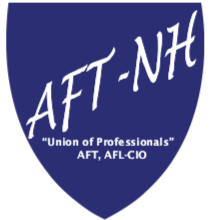AFT-NH testimony on HB 464 and HB 367
From Debrah Howes, President AFT-NH
Thank you, Chair Ward and Members of the Senate Education Committee, for reading my testimony.
My name is Debrah Howes. I am the president of the American Federation of Teachers-NH.
AFT-NH represents 4,000 teachers, paraeducators and school support staff, higher education faculty and town and municipal employees across New Hampshire. My members work with nearly 30,000 of the 165,000 public school students in New Hampshire in one way or another as well as working with thousands of public university students.
I am writing in opposition to HB 464 and HB 367, both of which would make many more students eligible for a state education voucher each equivalent to what the State of New Hampshire pays the local public school district for the education of a single student. As we know, and the New Hampshire courts have repeatedly agreed, our state has a constitutional duty to provide the opportunity for an adequate – even robust - public education to the children of every city, town and school district in the Granite State. It has yet to live up to that duty, as evidenced by ongoing court proceedings as recent as last week. By competing for the limited tax dollars available to the state, HB 464 and HB 367 make it even more difficult for NH to fulfill its obligation to the 165,000 students and their families who rely on neighborhood public schools to get their constitutionally
MORE


